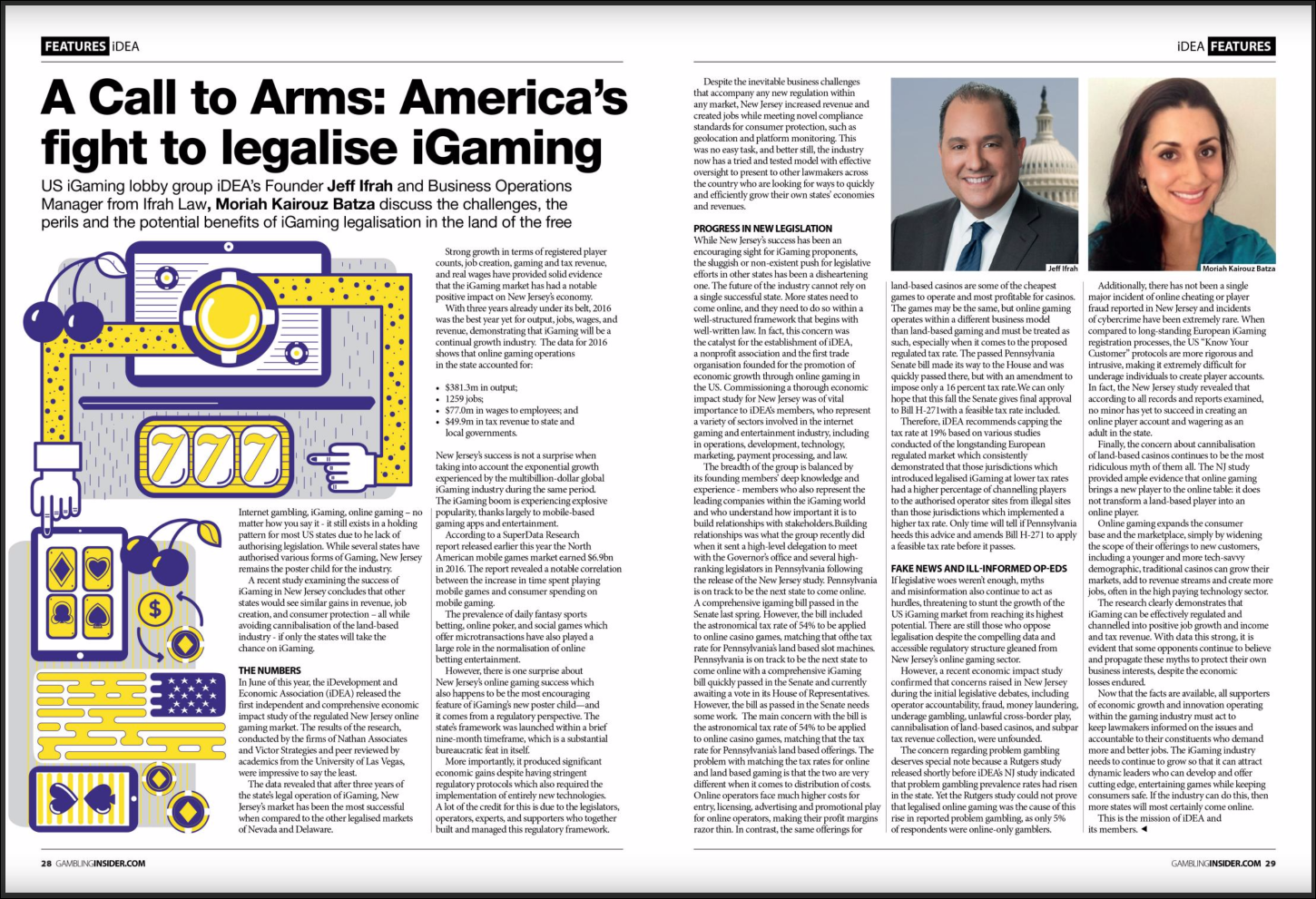Online Gambling Attorneys
Posted By admin On 29/07/22Thousands of Americans gamble online. But is online gambling legal? We break it down to show you what you can do, what you can't do, and what's still up in the air.
by Katherine Butler
updated September 03, 2020 · 2min read
The legality of online gambling is ever-changing. But one thing is constant: it makes a lot of money. Online gambling industry makes an estimated $1 billion dollars annually. This is a huge business, and a lot of people have cashed in on it. But it has led to some ambiguous legal issues, as the legality of online gambling is constantly being challenged.
A spate of lawsuits filed over the last few days target online gaming companies, alleging their digital casino offerings constitute illegal gambling under Washington state law. Big Fish Casino. Currently, the only legal form of online gambling is Daily Fantasy Sports, although there is no official law regarding DFS. Players in California are not able to play at sports betting, casino, or poker sites. Duane Morris gaming attorneys have decades of experience representing the diverse and growing range of participants in the gaming industry. We have significant experience advising clients including owners and operators of casinos and pari-mutuel wagering facilities, online/mobile operators, manufacturers of gaming equipment and software, eSports entities, key employees, banks and non-traditional lenders, as well as vendors that provide goods and services to casinos.
There are differences in the legality of making bets, taking bets, facilitating payments to casinos, and advertising on websites. And there are constantly new legal challenges. So here is a breakdown of the law on online gambling.
Legal Forms of Gambling
There is no federal law against placing a wager online. So, you can legally place a bet online. However, a wager must not be placed on a site located in the United States. There is a small chance players might run afoul of state law, but there is little chance of prosecution. The only case cited where a person got into trouble with a state was in 2003. Jeffrey Trauman of North Dakota paid a $500 fine on over $100,000 of online sports bet winnings.
Sites that are set up outside of the United States are legal. Therefore, gambling on websites located in areas like Australia, the Caribbean, and Latin America is legal. Just be very clear that the site you are playing on is not based on U.S. soil.
Definitely Not Legal Forms of Gambling
It is never legal to gamble on a website based in the United States. Also, if you are planning to operate an online gambling site, stay outside of the United States. You must also deal only with casino and poker wagers (not sports bets) from people in the US. And you cannot take bets over the phone from people in the United States.
Accepting online gambling advertising is also illegal. If you are a small publisher, you are less likely to be prosecuted, but why risk it? As of early 2009, only large and mid-size publishers had faced prosecution. In 2007, the three big search engines (Google, Yahoo, and Microsoft) each paid a fine for accepting online gambling ads, but did not face criminal charges. Other publishers, such as Esquire Magazine, have been warned by the government not to take online gambling advertising.
Facilitating the transfer of funds to online casinos is also a bad idea. As of 2006, it became illegal for American banks to process transactions originating from or directed toward any online gambling operator. Because of this, several sites then refused to take bets from American players. But as the law seems difficult to enforce, it has not turned the tide completely for American players.
Still up in the Air
Advertisers who promote sports books in magazines and on billboards may or may not face prosecution. So far, sports books have never been scrutinized for advertising online. And online casinos, poker rooms, and sports books have never been prosecuted for buying ads.
Online casinos and operators still accept American players. And international financial parties have continued to process their transactions. The legality is always changing and there have been attempts to declare online wagering against the law, but for now, U.S. citizens who simply place bets online are in the clear.
In the United States, both the Federal government and individual state governments are responsible for regulating gaming within their jurisdiction. The Federal government has designated some forms of gambling as prohibited within the US and has created laws that are non-negotiable in the regulation of such prohibited activities. On this subject, the Federal government may outlaw any form of gambling and states must abide by their law as Federal regulation will always trump state laws. It is important to any country’s gambling laws in order to stay within the country’s legal guidelines.
States, however, are permitted to maintain their own regulations and prohibitions on acceptable forms of gambling as dictated by Federal regulations. So long as state laws align and do not challenge or disobey Federal gaming laws they are free to control, oversee, and manage to gamble within their state. Usually, states create and employ gaming control boards or special gaming commissions to supervise gambling activities within their state borders. State laws are subject to their specific state and do not have jurisdiction or power to control laws in other states. Therefore, gambling laws can differ greatly between states.
Active Federal Laws And Regulations In The United States That Affect Online Gambling
The United States maintains several significant federal gambling laws that greatly affect how gambling is regulated and permitted throughout the nation. Each law provides its own in-depth explanation, reasoning, and history behind its creation and implementation. On this page we summarize the laws, however, to gain a comprehensive understanding of the background of each federal law simply follow the highlighted links to resource guide that provides a greater depth of explanation.
Federal Wire Act – To combat prolific organized crime surrounding illegal bookmaking, then President John F. Kennedy enacted this law which effectively outlawed betting businesses from using phones to accept, place, or transmit interstate or foreign wagers on sports. At the time, this federal law greatly minimized domestic mafia bookmaking operations. The law has recently been interpreted by the US Department of Justice as effectively prohibiting U.S. based online sportsbooks from operating within the nation’s borders. Therefore it is a crime to operate an online sportsbook on US soil. The law does not prohibit USA residents from engaging in online sports betting at a legitimately licensed and regulated sportsbook that is legally operating outside of the United States.
DOJ Formal Opinion – In 2011, the DOJ and the Office of Legal Counsel released a memo that explained their formal interpretation of the Federal Wire Act that countered against the previous position the Criminal Division of the DOJ had taken. The memo stated that their prohibition on US-based Internet gaming only applied to online sports wagering. This clarification effectively allowed U.S. states to determine their destiny regarding online gambling as long as it doesn’t entail betting on sports. Therefore online casinos and poker sites are now legally permissible should a state decide to legalize these forms of betting entertainment.
UIGEA – This federal law is specifically aimed at online gaming operators and online gaming payment processors to curb illegal financial crimes, fraud, and money laundering through internet gaming activities. Financial institutions were thus barred from permitting direct transactions to online gaming service providers and given specific regulations on how they may process such transactions. In essence, the law provides regulatory oversight regarding how the online gambling transactions of USA residents are processed. The law does not make online gambling illegal.
PASPA – Once acted as the governing law over the prohibition of brick and mortar sports wagering throughout the US, with the exception of four exempted states. These four states had already implemented some type of active sports wagering or had pending sports legislation in place by a specified deadline and therefore were deemed exempt from the restrictions enacted by PASPA. The exemption was also offered to New Jersey due to their thriving Atlantic City gambling entertainment market, however, the state failed to take advantage of this option and allowed the deadline to pass. However, in 2018 SCOTUS reviewed PASPA and on May 14th ruled it unconstitutional and void. This law is no longer effctive in the land of the free.
RAWA – A preemptive bill yet decided upon intends to rewrite the Federal Wire Act of 1961 to extend prohibitions to include all forms of online gaming. If passed, this law would violently impact the current and future USA online gambling market as it does not include carve-outs for existing state-regulated online gambling platforms such as those initiated in Delaware, New Jersey, and Nevada – effectively making all online gaming in the USA illegal immediately.
State Gambling Laws
Individual states maintain the authority to allow or prohibit any form of gambling within their borders that are not expressly prohibited by US federal gambling laws. Due to the differing climate of states and their individual positions regarding legal forms of gambling entertainment, it is crucial to provide up to date information on what each US state permits and forbids in order to deliver the most accurate information for our readers. Therefore, we have specialized state focused pages to deliver the most current information on gaming laws and permissible gaming entertainment within their borders. Not only that, we provide here a state-specific gambling entertainment bill tracker to keep Americans updated on upcoming legal forms of betting entertainment in their state and inform them of newly enacted or retracted gambling laws.
Who Regulates Gambling in The United States?
At the federal level, there are multiple agencies that have a say in the regulation of U.S.A. gambling, these figures include the Department of Justice, the Federal Bureau of Investigation, the US Supreme Court, the House of Representatives, Congress, and even the President. All of whom communicate with one another and utilize the US constitution and precedent laws to determine the eligibility and legality of pending gambling legislation and regulations. At the state level, senators and congressmen in government positions lobby, direct, and discuss possible gaming legislation to either generate, permit, and regulate various legal forms of gaming entertainment in their state.
Online Gambling Attorneys New York
However, state governments often create sanctioned oversight boards such as Gaming Control Boards or Gaming Commissions to authorize, supervise and regulate legalized gambling activities within their state. Certain states in the USA may only have limited forms of legal gaming and therefore consolidate administrative power to existing commissions such as Lottery Commissions that are then tasked to regulate lotteries and limited forms of gambling such as charitable gaming in this case.
Forms of Legal Gambling in The United States
There are a variety of legal forms of gambling within the United States, however, these permitted venues are not uniform across state lines and players interested in engaging in these activities should check with local state laws to ensure lawful participation. As identified by the American Gaming Association the following forms of gaming entertainment are legal in the US: brick and mortar commercial casinos, tribal-run casinos, public and private poker rooms, bingo halls, various charitable gambling venues offering games such as raffles, pull-tabs, paddlewheel, punchboards, and casino nights, table games, on-track and off-track pari-mutuel wagering on horse racing, exotic wagering, bookmaking, daily fantasy sports tournaments, skill-based tournaments such as billiards, darts, and fishing, and lotteries.
Forms of Legal Online Gambling in The United States
Within the U.S.A. there are legal forms of online gambling that citizens may participate in, however again, the permissibility of online wagering is not equal across state borders as individual states hold the authority to allow or prohibit various types of online gambling for their state residents. With this being said, a number of US states have permitted the legalization of online gaming platforms through the use of iGaming services providing online casino, poker and lottery initiatives that are thriving. As of this writing, Delaware, New Jersey, and Nevada all have state-based online poker available, and both Delaware and New Jersey also offer state-regulated online casino gambling as well.
At this moment in time, individual states are not eligible to provide state-regulated sports betting online due to current federal legislation blocking such access. Regardless, nearly all USA residents may participate in legally licensed and regulated offshore online sports betting sites that remain a legal online avenue for USA players.
Online Gambling Attorneys General
What Is The Legal U.S. Gambling Age?
Online Gambling Attorneys Miami
Generally, gambling is legally accessible to individuals above the age of eighteen. However, every state has its own laws on the minimum legal age for gambling within their borders and often it can vary by game type. Normally, lottery gambling, charitable gambling, parimutuel wagering and bingo are available to young adults who are at least eighteen. Often times poker and casino gambling impose a requirement for individuals to be at least twenty-one in order to participate. These norms vary by state.
What Happens If I Violate A US Gambling Law?
Nearly all states criminalize gambling in some form and contain various penalties and punishments set for engaging in illegal forms of gambling. Violations of any US gambling laws, whether federal or state, can lead to imprisonment, hefty fines, and/or probation. Each violation case is different, and penalties vastly change based on the state or jurisdiction the violation took place in and circumstance. Imprisonment can vary based on a misdemeanor or felony offense in which case can result in up to a year in county or local jail for misdemeanors and a year or more in prison for felony offenses.

Criminal cases involving organized crime and professional gambling can result in up to a 10-year sentence in federal prison or more. Fines can vary on a state by state basis, generally, misdemeanor fines can range from $100 up to a $1,000 or more. Felony fees are relatively handled the same way and they can reach up to $20,000 or more. Fines can be separate punishments or in addition to jail or prison sentences. Probation sentences often ask offenders to serve 12 or more months either in a gambling addiction treatment facility or refraining from participating in gambling activities alongside with judge recommendations for community service or similar.
Is Illegal Gambling a Problem in the United States?

In the past, illegal gambling rings were run by threatening mobster figures who would often commit violent crimes against individuals and families of persons with unpaid debts. Today, the seedy dark figures of the past are no longer so prevalent but that is not to say that there are no underground gambling activities taking place in the US. In fact, several cases of violent threats and acts occur to this day due to gamblers placing wagers and falling into debt with the wrong type of individuals.


Illegal gaming remains a huge black-market business in the U.S. and every day individuals can place illicit wagers through bookies, backdoor casinos, and illegal online portals while operators, owners, and bookmakers take their cut of this lucrative business. No one is sure how much money is exactly wagered illegally but some estimate that the numbers are close to $88 billion a year. Other than the issue of states being unable to tax this money and legal venues losing money to illegal platforms, the greater issue of possible gambling addiction remains the most threating as addiction can lead to serious problems concerning an individual’s financial welfare, home-life, and possible crimes committed.
Which States Consider Gambling Illegal?
Online Gambling Attorneys Near Me
Gambling is wholeheartedly illegal in Utah and Hawaii, as they are well-known for their gaming prohibitions and strict anti-gambling laws. These two states have often reasoned that gambling would destroy their religious values, moral family structures, and harm their communities. Certain states that do not oppose gambling on moral grounds still limit gaming within their borders and only provide minimal gaming entertainment access; a move that often forces interested bettors into illegal gambling activities. One state in particular that engages in this type of limitations is Alaska, however, other states employ similar limitation tactics. These types of restrictions have driven the legal online gambling industry to gain momentum.
How Do I Know If I’m Gambling At An Illegal Destination?
Often a red flag for any gambler is the location of the said gaming site. Look around: is the setting of the business in a rundown location hidden from legal oversight? Do you have to enter through a special backdoor? Is the lighting poor, hygiene of the venue dissatisfactory, and do the patrons and staff give off a suspicious feeling? The one sure fire way to determine the legitimacy of any type of gambling business either offline or online is through their credentials. Legally sanctioned gambling businesses have no problem being transparent regarding their licensing, regulatory oversight and compliance certifications.
All licensing credentials should reflect the name of the agency or gaming commission that issues licensing for any given jurisdiction, and can easily be verified through the relevant regulatory body. If you find yourself in contact with a gambling business of any kind that acts defensive or is elusive when you attempt to question their credentials, you can speculate that their legitimacy is questionable. Illegitimate gambling businesses, which in turn are illegally operating, are usually focused on predatory acts, such as theft and fraud. We strongly caution against sharing any information with any gambling business that you are not sure is operating legally within the industry.
Who Do I Contact About Illegal Gambling Operations?
Once you have come in contact with an illegal gambling operation that attempted to entice you to wager on or participate in illicit activities, contact a lawyer, report the illegal operation at ic3.org, and follow up with filing a report with the FBI, local law enforcement, the American Gaming Associations Illegal Gambling Advisory Board, and/or Internal Revenue Criminal Investigation Department.
Help With Gambling Addiction In The United States